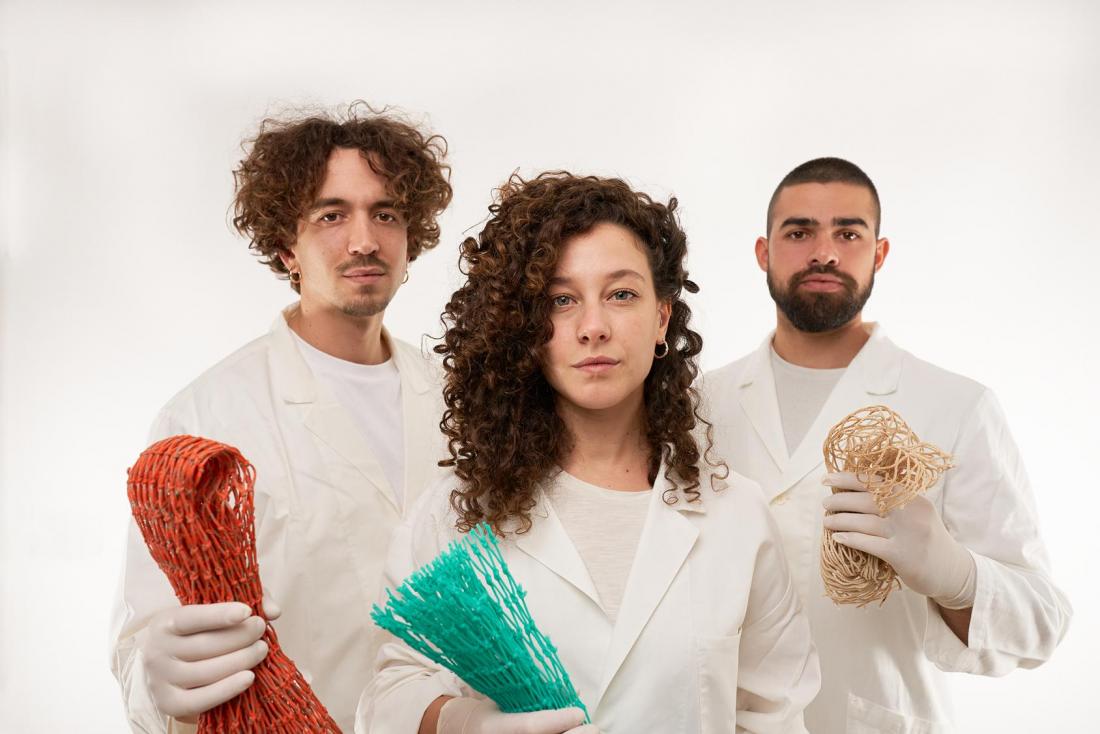GIMED: Crowdfunding campaign to create the first plastic collection and recycling centre in Southern Italy

Carlo, Cristiano and Federica, after incubation with Fondazione Communità di Messina under the GIMED project, have launched a first fundraising campaign to build the first plastic collection and recycling centre in Southern Italy. Banca Etica, a social bank in Italy, is actively collaborating within this crowd-funding. “Turning waste into a resource: this is how we will save the sea by networking”, think the three entrepreneurs from Risacca, the ethical and sustainable fashion start-up behind the campaign.
The crowd-funding has started to create the Risacca Lab, a social tailoring and a centre for recycling in a recovered container. If funded, the plastic collection centre will be born in Mazara del Vallo, in Southern Italy. It will be a new ecological garrison able to transform the networks in object of daily use, offer employment opportunities and sensitize more people on the issue of plastic in the sea.
The fundraising campaign will be open until February the 13th, until when you can donate on the platform produzionidalbasso.com and receive in return handicrafts, services and even study vacations for the most generous donors. Going back to the project, Risacca was founder a year ago by Carlo Roccafiorita, Cristiano Pesca and Federica Ditta, three under-35 professionals with backgrounds in design, regeneration and impact. Its mission: to promote innovative solutions on the reuse and recycling of waste from the fishing industry, from fishing nets to plastic recovered from the sea.
The fact that Risacca was born in Mazara del Vallo is no coincidence: a city historically linked to the fishing industry, for several years in the midst of a crisis between unemployment, decline in induced and lack of generational turnover. “Today, more than ever, we have to be resilient and introducing innovation can help us to find solutions that can generate work and protect the environment”, says Carlo, manager of the project. With Risacca, they have designed a process that will allow them to transform networks into resources, generating social impact.
The goal from this fundraising campaign is 26.250,00€. “Pollution is now a global urgency”, continues Federica, the designer of the project. “Our lifestyle has pushed us so far to produce a lot of waste, plastic in present in the DNA of the planet sickening ecosystems and it is estimated that in 2050 our seas will have more plastic than fish”. she says. In Mazara each year more than 10 tons of fishing nets are produced, whose disposal burdens on the economies of fishermen, sometimes driven to resort to illegal disposal methods.
It is from these observations that Risacca's goal was born: to give a second life to fishing nets to create new job opportunities and protect the environment. "We have collaborated with shipowners, fishermen, artisans - says Cristiano - and our workshop is a unique opportunity to respond to their desire to restart by diversifying the market and evoking traditions."
From GIMED support to the Risacca Lab
The laboratory will be located in the regenerated park of Periferica, already a place of local innovation. "Our vision is to replicate the Risacca Lab in every Italian port. We see Mazara as a first test to respond to a need widespread in many cities and communities born around the sea", urges Carlo.
To support the Risacca project you have to connect to the dedicated page and donate by choosing among the rewards: handmade net bags, experiences, 3D printed elements, training activities. For the most creative there is also the possibility to participate in the transformation of the container into a laboratory, discovering Mazara in seven days.
Thanks to GIMED they could structure the project in a systematic way and move from the idea to the project, in addition to measuring their real entrepreneurial possibilities. The EU-funded project GIMED, under the ENI CBC MED Programme, assisted them in every moment of the construction of their project. “The tools GIMED provided were useful for them to focus on the different subject areas to be developed a business project”, says the team.









